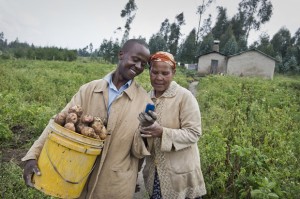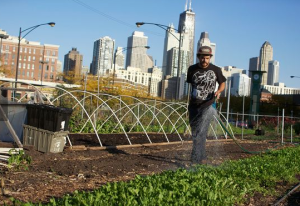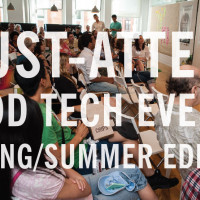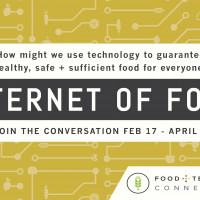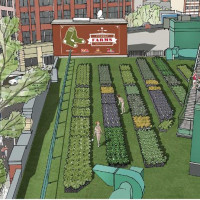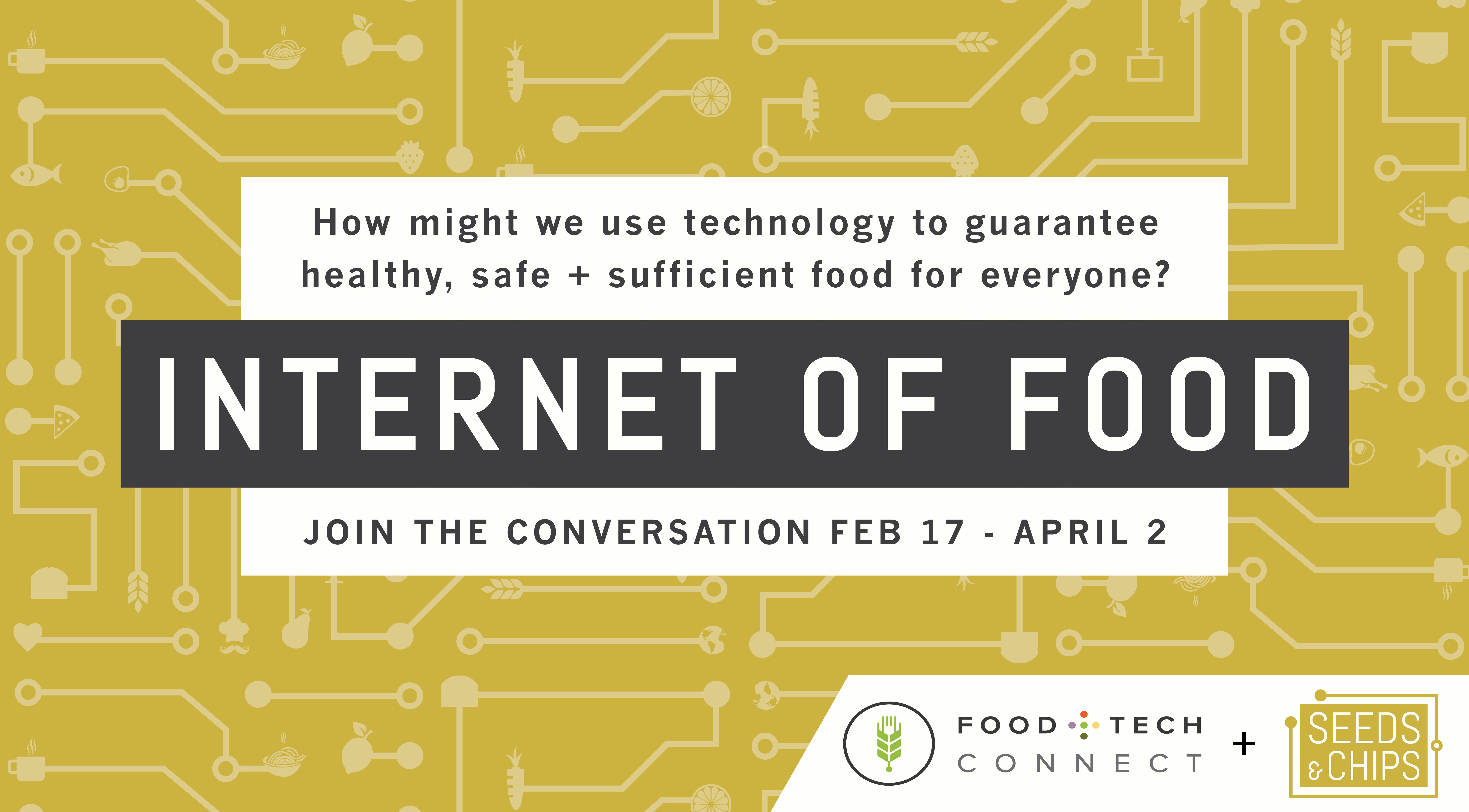
Over the past ten weeks, we asked leading food tech innovators “How might we use technology, new business models and design to guarantee healthy, safe and sufficient food for everyone?” in our Internet of Food Series with Seeds&Chips.
We published 22 thought-provoking responses on everything from normalizing insect consumption to Uber-ifying food distribution. Dig Inn founder Adam Eskin discusses democratizing the farm-to-table movement, Food Tank president Danielle Nierenberg explores how technology helps small-scale farmers prosper and cultivates educated eaters, Yummly COO Brian Witlin looks at how we can leverage data to incentivize healthy eating and much more.
Check out the wide array of insightful submissions in our roundup below, and make sure to share your thoughts in the comments section.
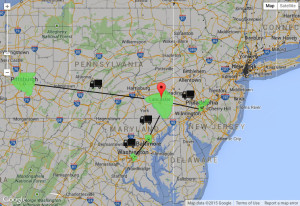 Why We Need to Uber-ify Food Distribution
Why We Need to Uber-ify Food Distribution
Jennifer Goggin of FarmersWeb makes a case for applying Uber’s on-demand model to local food distribution, in order to catalyze a healthier future.
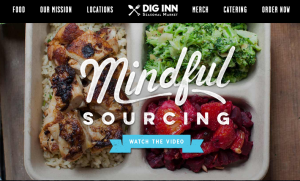 Dig Inn on Democratizing the Farm-to-Table Movement
Dig Inn on Democratizing the Farm-to-Table Movement
We chat with founder Adam Eskin about Dig Inn’s innovative supply strategy, the role tech plays in operations and his plans to cultivate a veggie revolution.
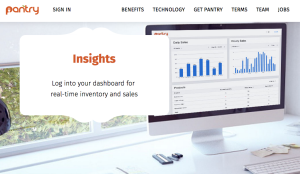 Bringing Amazon-like Innovation to Healthy Fast Food
Bringing Amazon-like Innovation to Healthy Fast Food
Alex Yancher of Pantry believes companies like Munchery and Sprig are pioneering a new fast food model, one he hopes will bring healthy, affordable food to the masses.
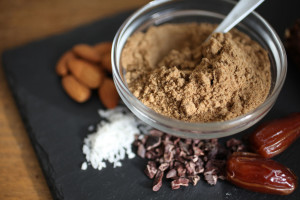 We Need to Harness the Power of Insects to Feed the World
We Need to Harness the Power of Insects to Feed the World
Exo co-founder Greg Sewitz believes bugs are integral to a sustainable future. He’s helping eaters get over the psychological hurdle via cricket protein bars.
 Enabling Healthy Eating with Personalized Food Identities
Enabling Healthy Eating with Personalized Food Identities
6SensorLabs co-founder Shireen Yates explores how startups are helping people eat healthier through personalized food identities, especially people with food allergies.
 Let’s Make Food Production Personal & Start a Home Growing Revolution
Let’s Make Food Production Personal & Start a Home Growing Revolution
Grove Labs co-founder Gabe Blanchet explores how home growing can make food production more efficient while bolstering the local food movement.
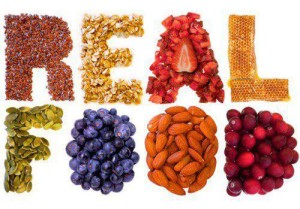 Arming Consumers with the Tools to Demand Real Food
Arming Consumers with the Tools to Demand Real Food
Lawrence Williams of USHFC discusses how REAL Certified empowers consumers and the foodservice industry to support real food, helping catalyze a better future.
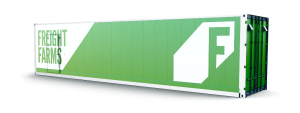 Feeding Billions by Empowering Millions to Farm
Feeding Billions by Empowering Millions to Farm
Freight Farms co-founders Brad McNamara and Jon Friedman weigh in on why enabling fresh food production in any environment is crucial to ensuring safe, healthy food for a growing population.
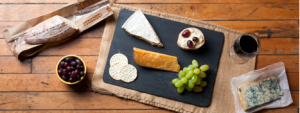 Optimizing the Microbiome from Farm to Table
Optimizing the Microbiome from Farm to Table
In order to feed a growing population, Scott Shibata of Diagenetix proposes we start recruiting from the trillions of microorganisms that are already in the field.
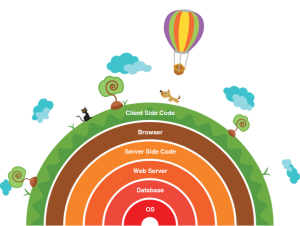 Creating Full-Stack Food Chain Solutions
Creating Full-Stack Food Chain Solutions
Cover co-founder Mark Egerman explores how to use tech to create lasting food chain infrastructure change in order to enable a better future for production, distribution and consumption.
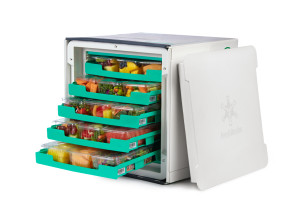 Reimagining, Not Reinventing, Food Distribution
Reimagining, Not Reinventing, Food Distribution
FreshRealm founder Michael Lippold claims we don’t need to rebuild food distribution infrastructure. We need to foster an evolution by connecting its players more efficiently.
Tech Helps Farmers Prosper & Empowers Educated Eaters
Food Tank’s Danielle Nierenberg and Sarah Small explore how innovative technologies and initiatives are cultivating a brighter future for farmers and eaters.
 Let’s Facilitate Healthy Eating by Simplifying Grocery Planning
Let’s Facilitate Healthy Eating by Simplifying Grocery Planning
KickDish founder Alex Greve explores how grocery tech services like Instacart, AmazonFresh and Google Express can help eaters make healthier, more economical food choices.
 Leveraging Data to Incentivize Healthy Eating & Improve Food
Leveraging Data to Incentivize Healthy Eating & Improve Food
Brian Witlin, COO of Yummly, discusses why harnessing data and creating financial incentives for healthy eating, will help us reimagine food production, regulation and consumption.
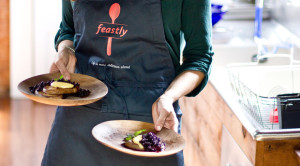 Reconnecting Diners & Chefs to Ensure a Better Food Future
Reconnecting Diners & Chefs to Ensure a Better Food Future
Feastly founder Noah Karesh is bringing the sharing economy to food and empowering chefs and eaters to celebrate real, authentic food experiences.
Linking Gardeners & Urban Farmers to Ensure Fresh Food For All
Ryan Albritton of Sprouthood believes connecting gardeners and urban farmers and enabling them to be co-cultivators of the same farm is key to ramping up fresh food production.
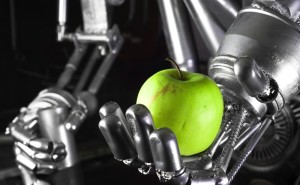 Programming the Global Food System, from Smart Seeds to Distribution Robots
Programming the Global Food System, from Smart Seeds to Distribution Robots
Rebecca Chesney of the Institute for the Future imagines a networked food future, in which natural and artificial objects can communicate and work together.
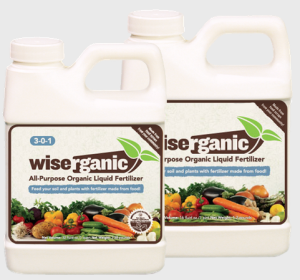 Upcycling Food Waste into Fertilizer to Catalyze a New Green Revolution
Upcycling Food Waste into Fertilizer to Catalyze a New Green Revolution
WISErg CEO Larry LeSueur believes that tackling food waste is fundamental to doubling production by 2050 while also cultivating a sustainable, profitable supply chain.
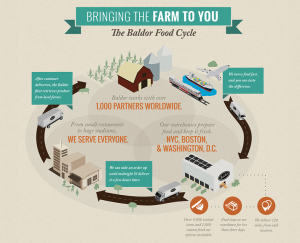 Harnessing Existing Distribution Infrastructure to Make Sustainable Food Mainstream
Harnessing Existing Distribution Infrastructure to Make Sustainable Food Mainstream
Baldor CEO TJ Murphy explores how to leverage operational expertise and industry-tested best practices to bring new levels of efficiency to the sustainable food movement.
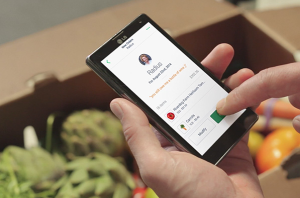 Food Supply Chain Transparency is Key to a Healthy Future
Food Supply Chain Transparency is Key to a Healthy Future
Peretz Partensky of Sourcery discusses how new tech and decentralized business models are tackling the least transparent part of our food system: the supply chain.
 Catalyzing a Food Revolution through Connected Ecosystems & Open Innovation
Catalyzing a Food Revolution through Connected Ecosystems & Open Innovation
Expo Milano’s Feeding the Accelerator Curator Johan Jorgensen explains how moving from silos to ecosystems, closed labs to open innovation is critical for a better future.
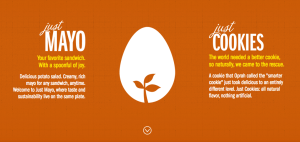 How Hampton Creek Aims to Guarantee Healthy, Safe & Sufficient Food For All
How Hampton Creek Aims to Guarantee Healthy, Safe & Sufficient Food For All
We chat with Hampton Creek CEO Josh Tetrick about re-engineering the food system, the wild success of Mayo Gate and why an IPO may be in the startup’s future.

